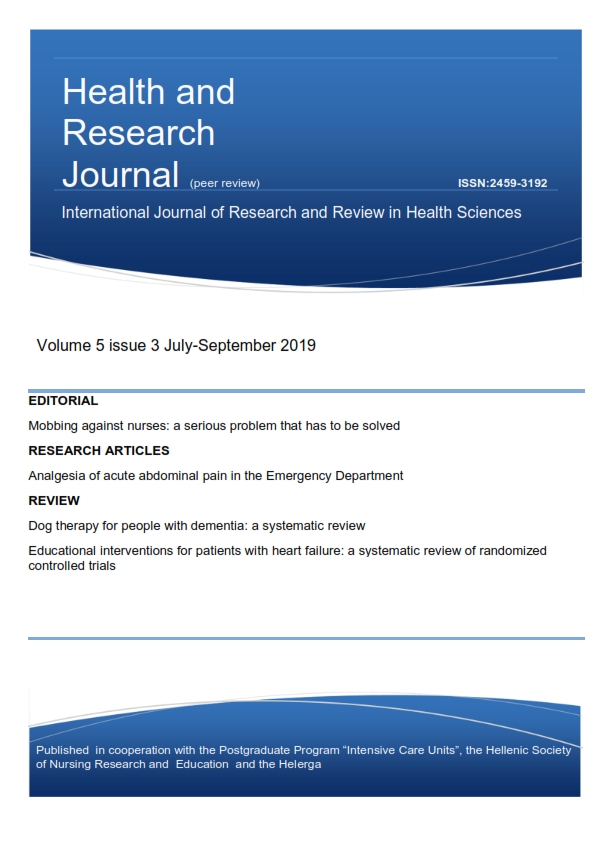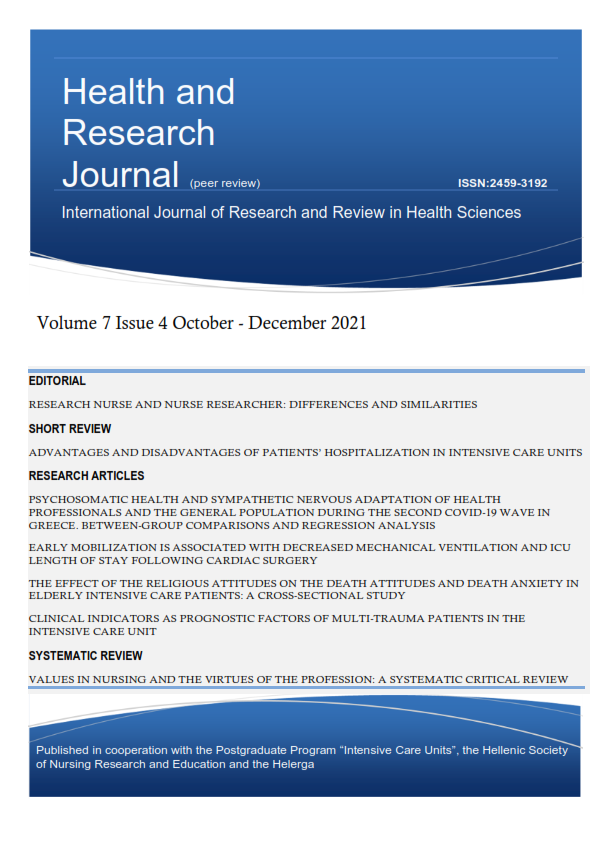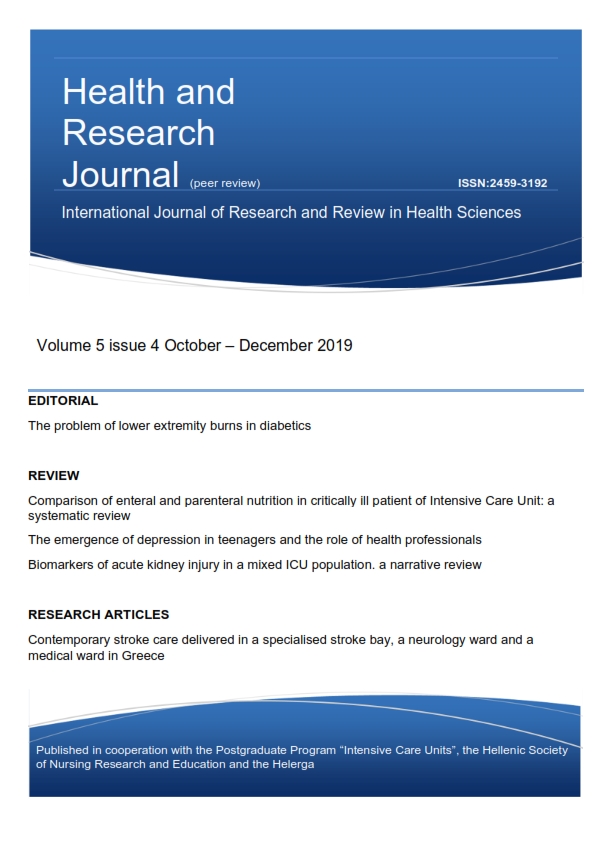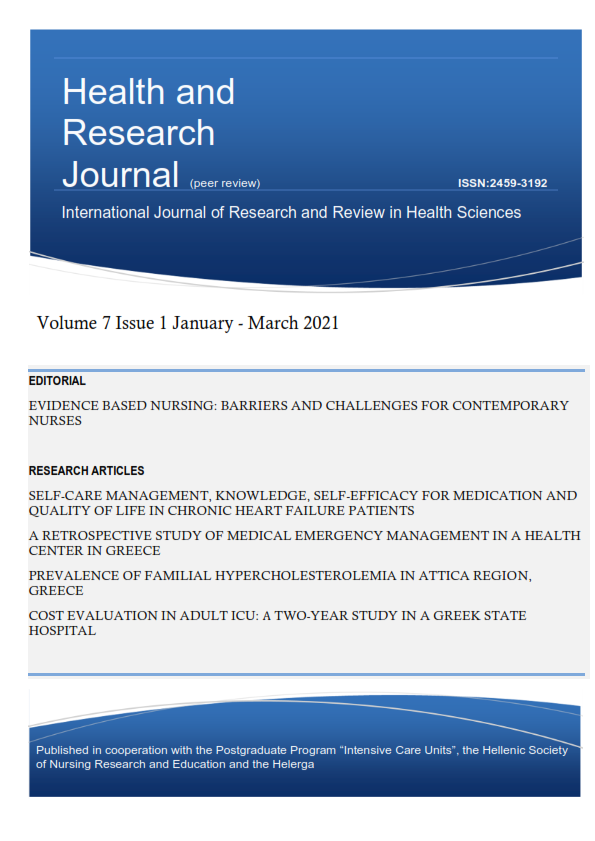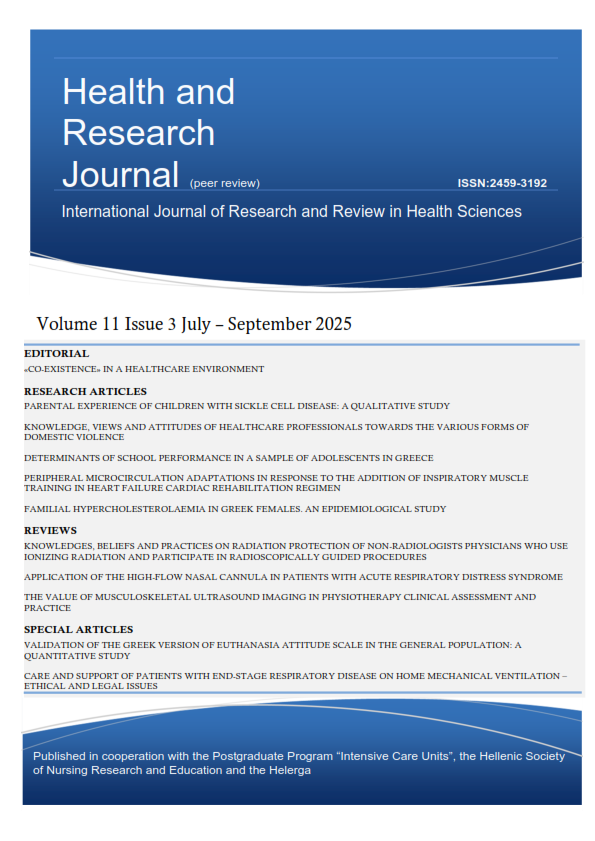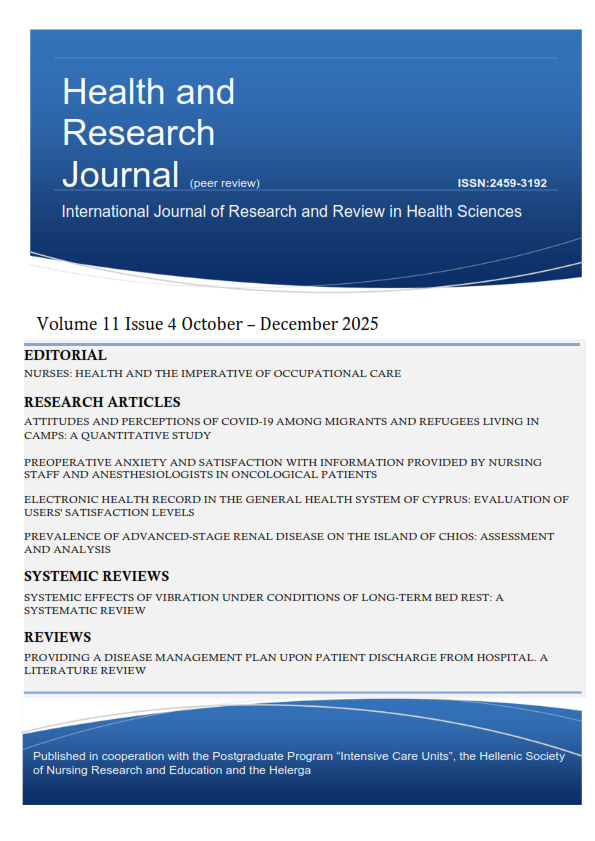Life in a Greek refugee camp: A personal account on being a nurse volunteer
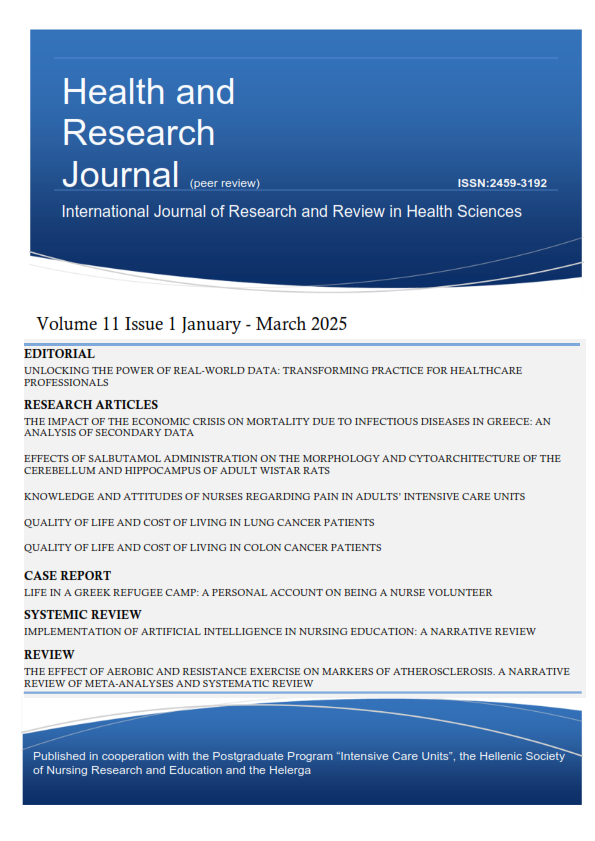
Abstract
Introduction: In 2016, a rising migration wave swept the Mediterranean area with numerous overcrowded makeshift transport boats crossing the Aegean Sea, with most arriving in Greece and thus, certain European countries started to close their borders. As a result, many refugees became trapped in northern Greece, unable to continue via the Balkan route to countries further north. With rising criticisms on camp operations, the lived experiences of volunteers working in the camps are essentially needed as a deep informative basis for further analysis and actions to be taken.
Aim: The purpose of this reflective position paper is to elaborate on the testimony of a nurse volunteer who has been working with immigrants and holds extensive personal experience in living and interacting in refugee host camps and related structures in Greece.
Methods: This case study is based on a personal narration of what a volunteer reported during the deployment of a face-to-face unscripted interview and in a reflection of her lived experience. An Interpretative Phenomenological Analysis approach was employed, aiming to understand deeply moving individual experiences by examining how the volunteer interprets and makes sense of those experiences within their unique contexts.
Analysis: In an analysis of the original interview content, the following critical reflective points were deployed as key elements of the subject’s narration within the context of the study as follows: Information dispersion; Recognition of support; Extreme behavior; Religious fanaticism; Perceived racial or cultural prejudice; Aftermath and Risk awareness.
Conclusions: Key elements of the workers’ experiences in refugee camps can be a very constructive basis for everyone involved, therefore informing employees, future volunteers and the wider public.
Article Details
- How to Cite
-
Theofanidis, D., Thomopoulou , T., & Fountouki, A. (2025). Life in a Greek refugee camp: A personal account on being a nurse volunteer. Health & Research Journal, 11(1), 68–73. https://doi.org/10.12681/healthresj.36829
- Section
- Case Report
Copyright notice:
Authors retain copyright of their work and grant the Health and Research Journal the right of first publication.
License:
Articles are published under the Creative Commons Attribution 4.0 International License (CC BY 4.0). This license permits use, sharing, adaptation, distribution, and reproduction in any medium or format, including for commercial purposes, provided that appropriate credit is given to the author(s) and the original publication in this journal, a link to the license is provided, and any changes are indicated.
Attribution requirement:
Any reuse must include the article citation and DOI (where available), and indicate if changes were made.



